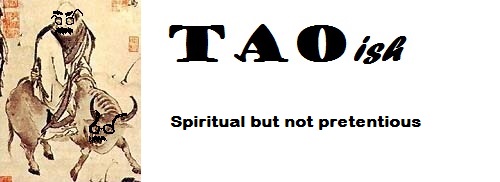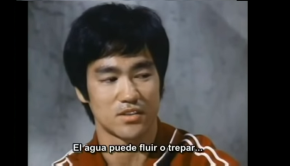Translating the Tao Te Ching (daodejing) — chapter 9
Robin (“Noedel”), writing on Reddit, recently raised an interesting question.
“This [Addiss/Lombardo Translation of the Tao Te Ching] seemed to be a very popular translation on Amazon, so I decided to go for this one. After reading a lot of verses online, I was looking forward to reading the book. But I must say the translations are not as appealing as the other translations I’ve read online.
For example, a popular post on this sub [chapter 9], is written as:
1) “Hold it and fill it. Not as good as stopping in time.
.
2) Measure and pound it. It will not long survive
.
3) When gold and Jade fill the hall, they cannot be guarded
.
4) Riches and pride bequeath error.
.
5) Withdrawing when work is done: Heaven’s Tao.”
I am shocked about how huge the difference is. Maybe it is just me, but though I think I understand my version, I don’t feel it as I feel the other translation right away. With my translation I feel like I need to think to understand, instead of just getting it.
Is this just me, or do others have the same with this translation? “
——————————————
This is an edited version of my response:
The whole question of translation is very difficult. You need to grasp the nuances of the original but also convey those nuances to your target readers in the language they know best. I don’t know if the translators you quote grasped the nuances, because I don’t read classical Chinese so how would I know? But it definitely does not convey much of anything to me. It’s confusing and opaque.
And to be fair, this is a tough passage, though everyone basically agrees on the third and last lines as some variation on
3) when your hall is full of gold and jade, no one can guard them for you (Mair); and
5) when your work is done, retire.
Line #2 is about sharpening swords, and Addison/Lombardo frankly just do a bad job of expressing it in English.
Here are other takes on lines 1, 2 & 4.
Victor Mair, a serious scholar of classical Chinese, has a very different rendering of line 1:
1) Instead of keeping a bow taut while holding it straight, better to relax,
2) You may temper a sword until it is razor sharp, but you cannot preserve the edge for long.
4) If wealth and honor make you haughty, you bequeath misfortune upon yourself.
Stephen Mitchell, the reckless popularizer, has a decent version of line 1, but his readings of line 3 and 4 are bizarre. Of all the translations I read, he had the only signifcant difference in those lines.
1) Fill your bowl to the brim and it will spill.
2) Keep sharpening your knife and it will blunt.
3) Chase after money and security and your heart will never unclench.
4) Care about people’s approval and you will be their prisoner.
My personal favorites (to date) are Robert Henricks and Ursula LeGuin. Henricks has:
1) To hold it upright and fill it, is not so good as stopping in time.
2) When you pound it out and give it a point, it won’t be preserved very long.
4) Arrogance and pride with wealth and rank, on their own bring on disaster.
LeGuin puts it very elegantly, I think:
1) Brim-fill the bowl, it’ll spill over.
2) Keep sharpening the blade, you’ll soon blunt it.
4) Wealth, status, pride, are their own ruin.
The most difficult verse is line 1, and LeGuin’s version is the only one that makes sense to me, since it fits the theme of lines 2, 3 and 4 — that having more of a good thing is sometimes worse than having just enough.
And it’s something I often experience — if I fill a cup full to the brim, with coffee or water, I’ll probably spill it when I walk, or even just try to drink it. (Maybe I’m just clumsy.) If I pour a bit less in, I actually end up with more coffee by the time it finally reaches my lips.
LeGuin is not a scholar and does not speak classical Chinese. She has been attacked by some for even daring to publish her version. However, LeGuin is an acclaimed writer, an awarad winning novelist and poet, as well as someone who has been studying and living the Daodejing for decades. She collaborated with a professor and translator of classical Chinese (J.P. Seaton) on her version. In this verse, anyway, her less educated approach seemed to have produced much better results.










